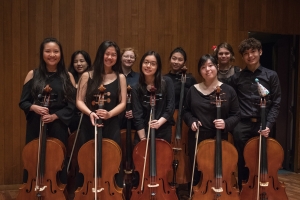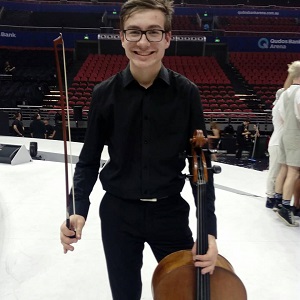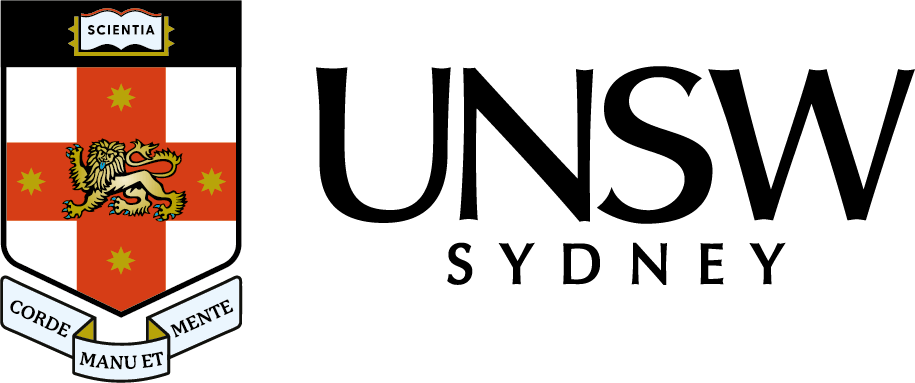So, You're A Cellist?

There are over 100 students, staff and community members in our Large Instrumental Music Ensembles at any given time. Each month we will be introducing a new section of our ensembles to you.
UNSW Orchestra has a robust team of skilful cellists. The name cello is derived from the word violoncello, Italian for "little violone", with violone, meaning a "big viola". So, violoncello, means a little big viol!
Kathryn Dalton is in her third year of a Bachelor of Data Science and Decisions. She has been part of UNSW Orchestra for three years.
Thomas Wills is in his second year of a combined Bachelor of Music/Bachelor of Engineering. This is Thomas’ second year in the UNSW Orchestra, joining last year, and returning this year for after orchestra being moved online due to COVID19.
Why did you choose to play the cello?
Kathryn: I had already been playing the piano, and I had tried the violin earlier with no success (I now have infinite respect for all violinists). The cello just struck me one day. I told my parents, and I began lessons at the start of the following year. I've been playing for almost nine years now, and I'm continuously falling in love with the instrument.
Thomas: I originally chose to play the cello because I wanted to play together with my family (as some of them are other string players). The only instrument that we were missing was the cello, however this wasn’t the sole reason for picking it. The cello has such a rich sound, which definitely attracts a lot of people to the instrument (me included).

What is the role of the cello in an orchestra?
Kathryn: The cello takes on all sorts of roles. We play bass lines just as often as we do melodies, with plenty of other accompanying roles in between. This variety is part of what I love about playing the cello.
Thomas: Like most other instruments in the orchestra, the cello is quite flexible in the exact role of the instrument depending on what type of music is being played. In one piece we could be playing the melody, while in other we play the bass line. However, cellists in orchestra are commonly thought of as playing the countermelody, developing the tune between us and the violins.
Is there anything unique or special about the cello section in UNSW Orchestra?
Thomas: The cello section in the UNSW Orchestra is quite unique in its companionship and camaraderie towards each other. Contrary to other orchestras I’ve been in, I’d like to think we acknowledge everyone as equal and don’t have a hierarchy of players and that we all get along quite well.
Kathryn: I love how the members of our section come from so many different educational backgrounds - not just music, but science, engineering and so much more. The way our passion for music unites us is special.
What is your favourite piece for cello and what is your favourite recording?
Kathryn: I can't just pick one! It's either Rachmaninov's Cello Sonata in G Minor or Kodaly's Sonata for Solo Cello, depending on how edgy I'm feeling. Faure's Elegie is also close to my heart. In terms of my favourite receording, Jacqueline du Pre's recording of Elgar's Cello Concerto - safe choice, but a classic!
Thomas: I know it’s very stereotypical and super famous, and whenever you think of cellist repertoire you think of it, but Bach’s Cello Suites are truly fantastic. I know Baroque isn’t for some people but, try listening to more than just the 1st Suite and you might be surprised by what you find.
Registrations to audition for UNSW Orchestra or to join UNSW Wind Symphony open in O Week of each term. Check out our UNSW Orchestra page to see which instruments we are currently accepting applications for. Anyone is welcome to join UNSW Wind Symphony.
